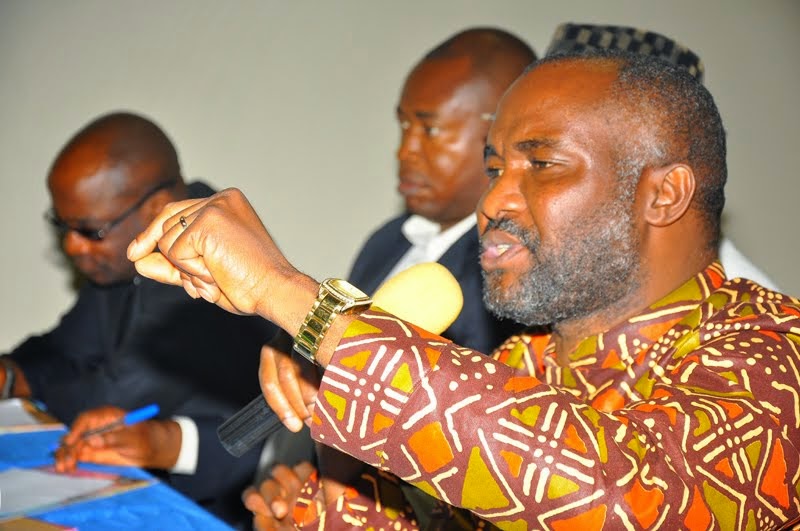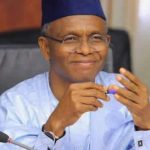
A Civil Rights Advocacy group, the Human Rights Writers Association of Nigeria, HURIWA, has asked the Nigerian government to perish the idea of setting up a Fulani radio station with public fund for herdsmen because it breaches several sections of the Nigerian Broadcasting Code and section 42 of the 1999 Constitution of the Federal Republic of Nigeria.
It warned that if the central government, in clear breach of all extant laws goes ahead with the Fulani radio as a public broadcaster, then it should be ready to face an avalanche of litigations from Nigerians of diverse ethno-religious configurations who would be shortchanged should the Commonwealth of Nigerians be deployed to the exclusive interest of a section of Nigeria.
In a statement by its National Coordinator, Comrade Emmanuel Onwubiko and the National Media Affairs, Director Miss Zainab Yusuf, HURIWA said the idea of setting up an exclusive publicly funded radio station to broadcast in one language was both divisive and criminal, stressing that it may be misconstrued as a weapon to mobilise armed Fulani herdsmen to intensify their murderous and blood cuddling rampage all across Nigeria.
The group reminded the Nigerian government that the genocides that tore apart Rwanda prior to the coming of President Paul Kegame were aggravated by ethnic-oriented broadcasting institutions similar to what the Minister of Education, Adamu Adamu categorically announced.
HURIWA also dismissed as double speak the belated explanation by the Director General of the National Broadcasting Commission, Alhaji Modibbo Kawu, “who sought to tie a wool of confusion on Nigerians by denying that the Radio Licence issued which the Minister of Education-the Fulani born Alhaji Adamu Adamu confirmed to be a Fulani Radio for herdsmen is not exclusively for herdsmen but for farmers and hunters.”
HURIWA “wondered why the NBC official clearly spoke from both sides of his mouth when the Minister of Education Adamu Adamu categorically confirmed to Nigerians that the Radio Licence was obtained for the purposes of broadcasting in Fulani and for the herdsmen to stop the attacks targeting farming communities.
“The idea of a Fulani radio station with public fund will never be accepted by Nigerians going by the obvious constitutional crime that such an action has engendered which offends section 42 of the Constitution Of the Federal Republic of Nigeria.”
HURIWA said “the decision of the Muhammadu Buhari’s administration to obtain a licence and plan to deploy public fund to commence the operations of the radio for the purposes of mobilising fulani herdsmem violates several sections of the National Broadcasting code which are derived from the extant National Broadcasting Commission’s Act including the sections that prohibits the deployment of public fund to service the interests of only a few sections of Nigeria.”
The group, while quoting from the code of public and private broadcasting in Nigeria, said, “The broadcastingCode represents the minimum standard for broadcasting in the Federal Republic of Nigeria.The Code shall be applied in the spirit as well as in the letter in accordance with the professional ideals of broadcasting.”
It maintained that “the broadcasting code in its general principles defines the character of broadcasting and emphatically stated that the general interest of Nigerian nation and not of one ethnic group must be conveyed by the activities of the publicly funded broadcasting just as the code stated that broadcasting shall influence society positively, setting the agenda for the social, cultural, economic, political and technological development of a nation, for the public good.”
HURIWA reminded the Federal Government that “the National Broadcasting code rules out such discriminatory funding of a radio outfit to serve sectional interest because by means of broadcasting, every Nigerian is expected to partake in the sharing of ideas and experiences that will enrich the life of the citizenry and help them live in a complex, dynamic and humane society, as stated in the fundamental objectives and directive principles of state policy set out in Chapter two of the 1999 Constitution of the Federal Republic of Nigeria {as amended} {hereinafter referred to as the Constitution}.
“May we inform President Buhari that the cardinal responsibility of broadcasting is to inform, educate and entertain and shall not be at the expense of national interest, unity and cohesion of
Nigeria’s diverse social, cultural, economic, political and religious configurations which this his Fulani radio station can not meet the thresholds and global best practices,” HURIWA said.





